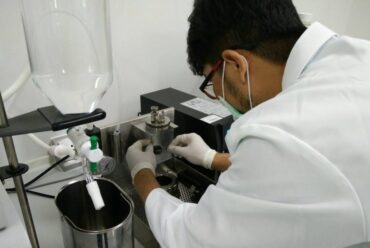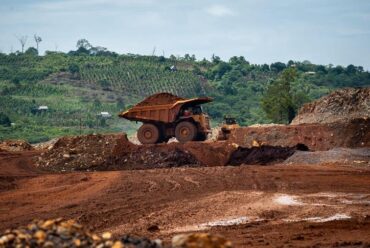8 Benefits of Biomass Energy Conversion
In today’s rapidly evolving world, the demand for sustainable and renewable energy sources has never been higher. Biomass energy conversion offers a promising solution to meet our energy needs while reducing our carbon footprint. This article explores the various benefits of biomass energy conversion and its potential to transform the way we power our lives.
Biomass energy conversion is gaining significant attention as an eco-friendly and sustainable alternative to traditional fossil fuels. As the world faces the challenges of climate change and depleting fossil fuel reserves, exploring renewable energy sources becomes crucial. Biomass, which comprises organic materials such as agricultural and forest residues, organic waste, and dedicated energy crops, presents a promising solution to our energy needs.
What is Biomass Energy?
Biomass energy is derived from organic matter and biological processes. It can be converted into various forms of energy, including electricity, heat, and biofuels. Biomass energy conversion involves using technologies to harness the stored energy in biomass and transforming it into usable energy.
Benefits of Biomass Energy Conversion
Biomass energy conversion offers numerous benefits that contribute to a more sustainable and greener future:
1. Biomass Energy Conversion: A Sustainable Choice
Biomass energy conversion involves the transformation of organic materials, such as agricultural residues, forestry waste, and municipal solid waste, into usable energy. Unlike fossil fuels, biomass is a renewable resource that can be replenished through natural processes, making it a sustainable and environmentally friendly choice.
2. Reducing Greenhouse Gas Emissions
One of the primary advantages of biomass energy conversion is its potential to mitigate greenhouse gas emissions. When organic materials decay naturally, they release methane, a potent greenhouse gas. By converting biomass into energy through processes like combustion and gasification, we can harness its energy potential while preventing the release of methane into the atmosphere.
3. Diversification of Energy Sources
Overreliance on fossil fuels has led to environmental degradation and energy insecurity. Biomass energy conversion offers a viable alternative, diversifying our energy sources and reducing our dependence on finite fossil fuel reserves. This diversification enhances energy security and reduces the vulnerability of nations to geopolitical tensions related to energy supply.
4. Promoting Waste Management
The conversion of biomass into energy can significantly contribute to effective waste management practices. Instead of letting organic waste decompose in landfills and release harmful gases, utilizing it as a biomass feedstock for energy production adds value to waste materials and reduces their environmental impact.
5. Rural Development and Job Creation
Implementing biomass energy conversion projects can revitalize rural economies by creating job opportunities in the biomass supply chain, from collection and processing to energy production and distribution. This localized economic development can strengthen rural communities and improve the overall quality of life.
6. Lower Carbon Footprint
Compared to traditional fossil fuels, biomass energy has a lower carbon footprint, which makes it a valuable tool in the fight against climate change. By replacing coal and other high-carbon fuels in power generation, we can significantly reduce carbon dioxide emissions and move towards a more sustainable energy future.
7. Flexibility and Versatility
Biomass energy conversion is a versatile technology that offers various possibilities for energy production. Biomass can be converted into heat, electricity, and even biofuels for transportation. This flexibility allows for integrated and customized energy solutions, catering to the specific needs of different industries and regions.
8. Supporting Agricultural Sector
The cultivation of biomass feedstock creates a symbiotic relationship with the agricultural sector. Farmers can diversify their income streams by growing energy crops, such as switchgrass and miscanthus, while also contributing to renewable energy production.
Challenges of Biomass Energy Conversion
Despite its benefits, biomass energy conversion also faces certain challenges:
1. Feedstock Availability and Competition
The availability of biomass feedstock can be limited, and competition with other industries, such as agriculture and forestry, may affect its cost and availability.
2. Land Use and Deforestation Concerns
Large-scale biomass production may lead to land-use conflicts, potentially causing deforestation and habitat loss.
3. High Initial Investment and Infrastructure
Establishing biomass energy facilities requires significant initial investment and appropriate infrastructure.
4. Energy Density and Transport Logistics
Biomass has a lower energy density than fossil fuels, necessitating efficient transport logistics for large-scale utilization.
5. Emissions and Air Quality
Incomplete combustion or improper waste management can result in emissions of particulate matter, carbon monoxide, and other pollutants affecting air quality.
Read also: Definition of Biomass Energy, Benefits, and Types
Conclusion
The benefits of biomass energy conversion are far-reaching and encompass environmental, social, and economic aspects. As we strive to transition to a more sustainable energy landscape, biomass conversion plays a crucial role in reducing greenhouse gas emissions, promoting waste management, and bolstering rural economies. By embracing biomass energy, we can move closer to a greener, more prosperous future.
Are you ready to embrace the power of biomass conversion and make a positive impact on the environment and your community? Join the renewable energy movement today and be part of the solution. Explore the possibilities of biomass conversion and biorefinery, and contribute to a cleaner, more sustainable world.







